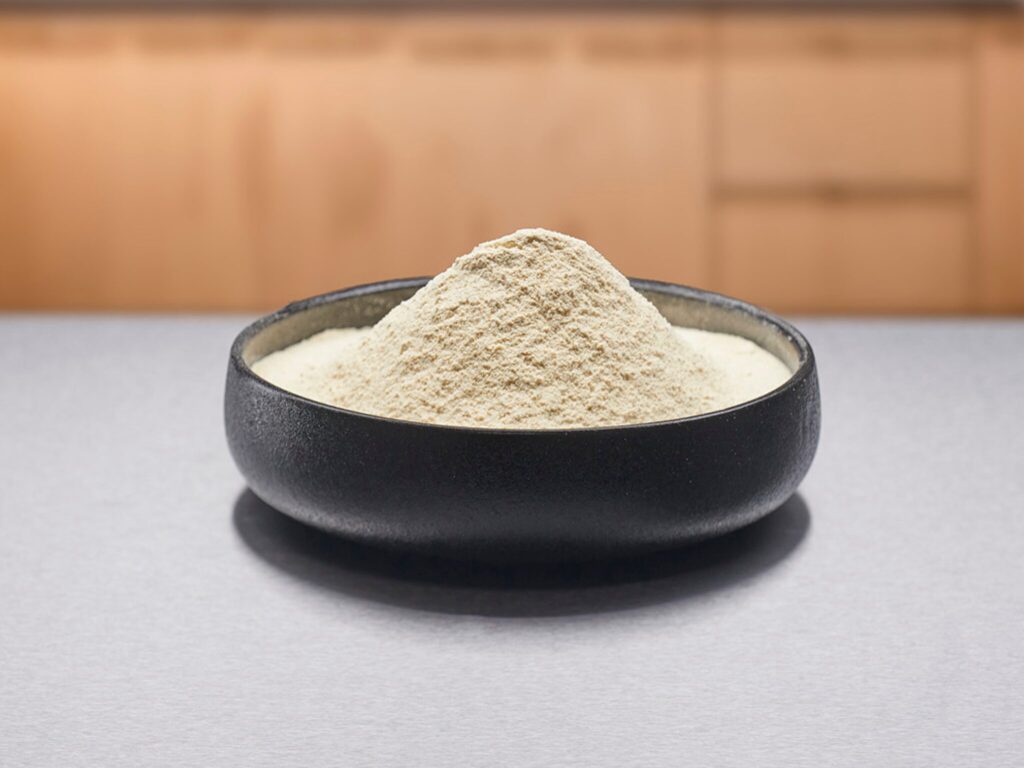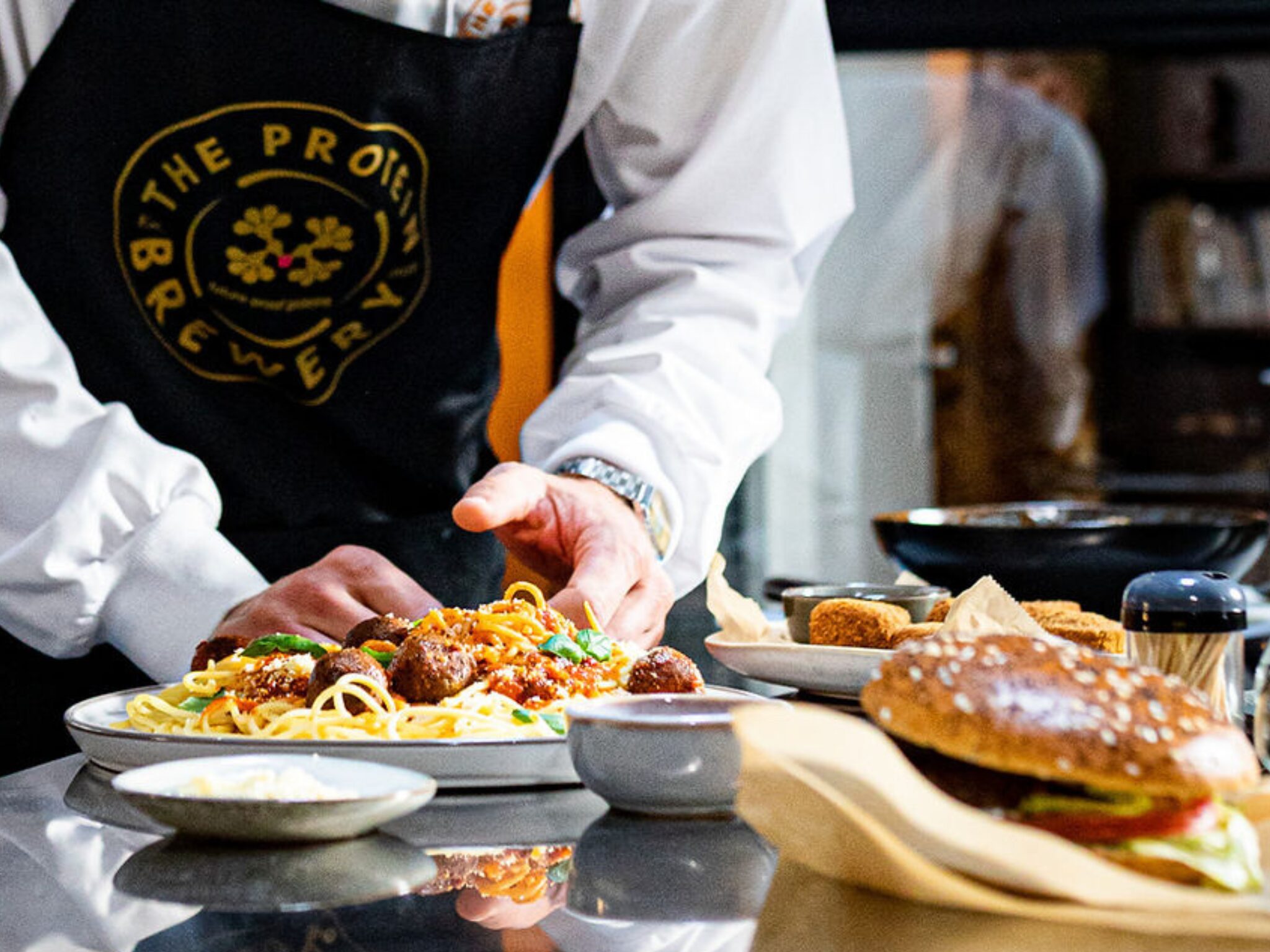The Protein Brewery Earns US & Singapore Regulatory Approval for Fermotein Ingredient
5 Mins Read
Dutch food tech startup The Protein Brewery has received regulatory approval from US and Singapore authorities to produce and market its fungi-derived fermented ingredient, Fermotein.
Joining a growing list of alternative protein companies securing regulatory approval, Dutch startup The Protein Brewery has received the green light from the Singapore Food Agency for Fermotein, a fermentation-derived fungal biomass ingredient, also securing Generally Recognized As Safe (GRAS) status by the US Food and Drug Administration.
The regulatory breakthrough means the Breda-based company can now import, manufacture and sell food ingredients featuring Fermotein in these countries. The ingredient is rich in fibre and protein, and can be produced from water-efficient, non-allergenic crops like cassava, corn, potatoes, sugarcane and sugar beets, allowing it to be commercialised globally on a local scale.
The regulatory clearance will allow The Protein Brewery to extend its commercial operations beyond the US and into Singapore. “We are incredibly pleased about the collaboration with the Singapore Food Agency throughout our novel food dossier process,” says Yvonne Dommels, director of nutrition and regulatory affairs of The Protein Brewery.
“The dialogue between our organisations was characterised by openness and transparency, guided by helpful and engaged professional individuals from the novel food team.”
Fermotein’s functional and environmental prowess

Founded in 2020, The Protein Brewery was born out of a demerger of industrial biotech company BioscienZ BV, and aims to commercialise sustainable food ingredients that turn low-nutrition-value crops into highly nutritious products. It works across a broad range of technologies, including molecular biology, fermentation, analytical tools, and downstream processing tech.
The startup has raised €26M in total funding, following a €22M Series A in 2020. Fermotein is a whole cell bioproduct that contains dietary fibres that support the immune system and healthy cholesterol levels. It has a neutral taste, smell and colour, making it functionally versatile and enabling companies to use it without masking agents.
The Protein Brewery says Fermotein can be used in both food products and recipes, including pizzas, pancakes, muffins and meat analogues. In fact, the fermented ingredient’s yield is 26 times higher than animal protein, four times more than soy, and five times more than pea protein. On average, fungal proteins’ emissions and water use are 20 times lower than animal-derived proteins, and the startup has previously stated that compared to beef, Fermotein only uses 1% of the land, consumes 5% of the water and releases 3% of the emissions.
To manage its entire production process – including handling raw materials, brewing, downstream processing, formulation and packaging – it operates from a pilot plant that can produce 100kg of protein daily. “Fermotein comes in a dry powdered form and has a very beneficial supply chain compared to other mycoprotein products, which are supplied ‘wet’ (frozen),” brand manager Roxanne Snijders told Protein Production Technology International magazine in January.
She added: “It also extends the sensorial shelf by reducing staling in baked goods and bar hardening in protein bars. The fibres in our ingredient also have a water-holding capacity that prevents water leaking out of the products, so it retains more moisture to keep [the] product soft and fresh.
The Protein Brewery recently conducted an analysis to compare the taste profile of Fermotein with other protein powders. “On a sensory profile, we have a great score compared with pea and soy and, as our product doesn’t compromise performance, it’s suitable for many applications and widely embraced,” noted Snijders.
A big year for fermented protein regulation

The company has secured its first customers and is in talks with a number of companies – including large food businesses – for potential partnerships. This includes US allergen-free ingredients company Nepra Foods, and Canadian distributor CK Ingredients.
“To support our commercialisation journey in the USA, we also have our own sensory panel doing regular testing in tasting, on quality assurance, and continuously improving our products,” Snijders said. “Together with [trade group] the Fungi Protein Association, we have a shared responsibility to stimulate consumer acceptance of fungi-based products.”
She added: “In the end, there’s only a few things that truly matter to consumers: taste, health and price. So, we’ll be as competitive as we can by ticking all these boxes.” Snijders had noted that the company relies on governments to “put in their fair share of commitment and support” to enable producers to bring fungi-based products to market. The regulatory approvals in the US and Singapore are a huge sign of progress in that area – and The Protein Brewery is not stopping there, having filed for novel foods clearance in the UK and the EU too.
Reflecting on the significance of the approval in Singapore – a global leader for food tech innovation and regulation – CEO Sue Garfitt said: “The Protein Brewery sees tremendous potential to enhance the nutritional landscape of everyday food and drink choices for the busy Singaporean population. We recognise the trend towards convenience-driven food choices, often leading to reliance on ready-to-eat and takeout meals. By incorporating Fermotein into these and more traditional dishes, we will increase their nutritional value, enriching them with protein and fibre without compromising on taste and texture.”
The development comes amid increased regulatory acceptance for fermentation-derived novel proteins in the US, where San Francisco’s New Culture became the first company to attain self-affirmed GRAS status for animal-free casein in March, just as another Dutch startup, Vivici, obtained this certification for its whey protein. This followed Israel’s Imagindairy receiving a ‘no further questions’ letter for its precision-fermented whey from the FDA.
And in 2023, fellow Israeli startup Remilk joined California’s Perfect Day (both are producing whey too) on that FDA GRAS list, alongside Singapore-based TurtleTree (which is producing animal-free lactoferrin), and Californian startup The EVERY Co, which earned its third GRAS notification late in the year for egg proteins.
It’s proving to be a big year for fermented proteins, and a big one for The Protein Brewery too, which will open a plant and move its headquarters after the successful commissioning of its scale-up brewery, announce fresh partnerships, and reveal a new product. Given that these proteins are outfinancing their plant-based and cultivated counterparts in terms of investment, it feels like a good time to be in the fermentation space.



